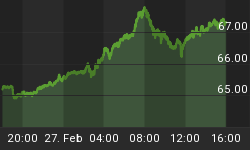
Since March 2009 till June 2011 the US Federal Reserve has stimulated the economy buy buying mortgage back securities for real money. This amounted to about $2.7 trillion dollars. Where else can this sort of stimulus come from.
The Dow 20000 is a call made by James Altucher on CNBC
1) From US corporates Balance Sheets: They have about $2 triillion of cash on the books, so far they are not spending it, if they did YES that would be a huge stimulus.
2) Banks release hordered cash: Alan Greenspan said in this post that banks who received all the stimulus from selling to the Fed their junk paper for real cash have not on lent it to the wider economy. They have hordered cash for themselves at 0.25%, and of course the speculation in stock and commodity markets (God bless them !).
3) Oil Crashes: If oil rises this is a massive tax on the economy, if it falls then this is tax relief. Oil only falls if the US government release supply stocks to swamp demand, or traders feel demand will fall as they fear a global slow down.
4) Interest Rates stay low: The US 10 year yield stays below 3%. But like oil this is market driven.
5) US Dollar falls at a moderate pace: This is a two edge sword better for exports, not so good for imports and can be inflationary. US exports as a percentage of GDP is small, so this effect is always over hyped, but if it jumps to 40% of GDP that would do it!
6) US economy grows via inovation: New products like the Ipad. This is James Altucher main play, we feel this arguement will need a lot of Ipads.
Thats the list, if any of the above become a serious trend, sure the Dow may print 20,000.
More on Point 2. Some banker bashing!
This is why the all the Phds at the Federal Reserve get a F for fail, and former Goldman Sachs CEO and Treasury secretary Hank Paulson gets a A for making his banking pales richer.
Economics is about people, and their attitudes towards risk and reward. The bankers were never going to lend to a broken economy when the consumer main borrowing asset is falling in price. Both asset and debt require a massive restructing for real growth to return. There have been two approaches to the 2008 financial crises, the Iceland and Swedish approach and then there is the Ireland approach, the first is the debt and assets are restructured and banks lose big, then second the debt not restructed and assets prices remain over inflated on the banks books. The approach executed in each country has a high correlation to the level of influence the bankers have at the highest government level.
History will prove that the Swedish approach was the better choice.















